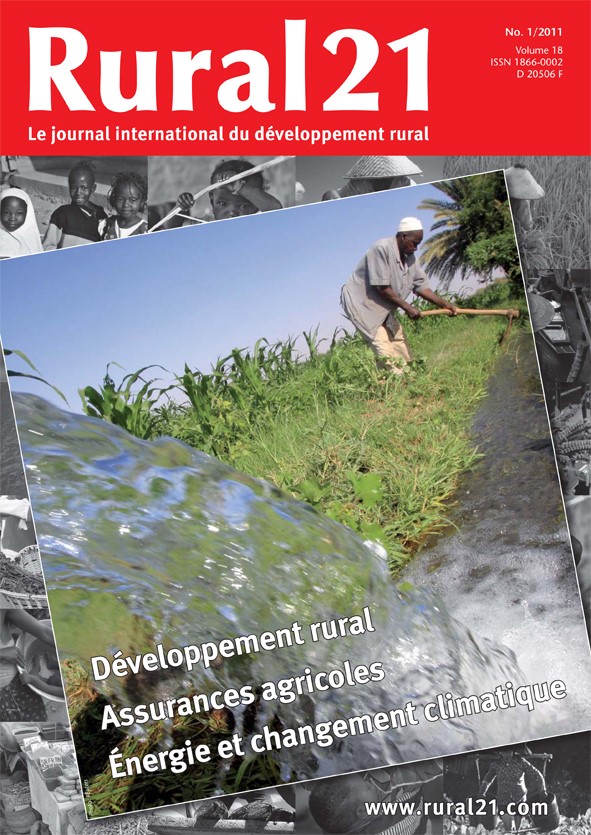Location
The international journal Rural 21 has dedicated more than 40 years to all topics surrounding rural development. Its ambition is to further those strategies and policies that strengthen rural areas of developing and newly industrialising countries and encourage their implementation. The journal addresses the complete range of relevant themes – from agriculture and fisheries via capacity building and education through to health and social security, energy supply and trade. Center-stage is always devoted to inquiring into how measures and strategies can contribute to global food security and to reducing poverty.
Rural 21 desires to further the dialogue between science and politics, the private sector, civil society and practitioners. Two platforms are designed for this purpose: Rural 21 in print is published four times a year, each issue highlighting a specific focus of rural development – this print edition is read in more than 150 countries. In parallel, Rural 21 online keeps the rural development community up to date on news and events, scientific findings and other print and online publications.
Rural 21 is published by DLG-Verlag GmbH in Frankfurt/Germany. Financial partners are BMZ (German Federal Ministry for Economic Cooperation and Development), GIZ (Deutsche Gesellschaft für Internationale Zusammenarbeit), DLG (German Agricultural Society – Deutsche Landwirtschaft-Gesellschaft), SDC (Swiss Agency for Development and Cooperation) and Helvetas Swiss Intercooperation.
The first issue of Rural 21 dates back to 1968. From 1974 to 2007, the journal was published in three languages entitled "entwicklung & ländlicher raum" / "agriculture & rural development" / "agriculture & développement rural". In 2008, the journal was relaunched as "Rural 21".
Members:
Resources
Displaying 171 - 175 of 319The response of FIAN International
The outcome of the Madrid High-Level Meeting on Food Security can be considered a victory for those who want to see the multilateral governance of the global food and agriculture system improved and strengthened, and conducted within the Right to Adequate Food framework.
Peru: Preserving tropical forests with a focus on sustainable and participatory development
Against the backdrop of increasing deforestation in Natural Protected Areas due to illegal logging and shifting agriculture, the Peruvian association DRIS has implemented a programme in three districts of the country. The goal is to involve the families in forest protection activities while simultaneously providing them with income opportunities
Developing Zambia's agriculture: a hard road to hoe
Zambia’s small-scale farmers are even poorer today than they were 40 years ago. According to the 2010 Human Development Report, Zambia is one of just three nations whose development has fallen behind 1970 levels. And yet Zambia is one of Africa’s “lion states” with annual economic growth rates of more than 5 percent. It is not easy to explain such a contradiction, but a DIE study is drawing closer to ? nding an answer.
Livestock surge may harm human health
Livestock intensification in developing countries, especially in Africa and Asia, may increase the incidence of epidemics that kill both humans and animals, the International Livestock Research Institute (ILRI) warns. Livestock numbers are rising sharply due to population growth and the rise in affluence, as both factors lead to increased demand for milk, meat and eggs.
Partenariats énergétiques ? Travailler en équipe, mais dans quel but?
La sécurité énergétique est un enjeu majeur pour tous les pays importateurs d'énergie (très majoritaires dans le monde): 160 pays importateurs d'énergie dépendent de 40 pays exportateurs. Lorsqu'on pense énergie, on pense généralement aux combustibles fossiles tels que le charbon, le pétrole et le gaz et ces marchés sont fortement faussés par les monopoles d'États et le manque de concurrence.



